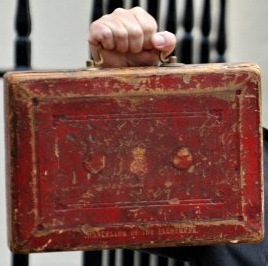Kate-Craig Wood, founder of IT company Memset
I greatly welcome the reduction in corporation tax in an effort to boost the attractiveness of business in the UK. Also, less tax will enable me to invest more, growing the business faster and creating more jobs. I also welcome the £2 million entrepreneur relief being extended to £5 million gains over a lifetime. Although I’m not looking for an exit any time soon, it is important to encourage new entrepreneurs and to attract the right people that allowance needs to be in the £5 million range.
I agree with the VAT increase to 20 per cent. Taxation at the point of spending is one of the fairest taxing methods since people still have the ability to choose. Also, as we saw with the VAT reduction, a change of 2.5 per cent in the headline price of consumer goods has little impact on consumer spending.
He talked of extending the Enterprise Finance Guarantee scheme. However, the EFG is broken! It was supposed to help banks lend to entrepreneurs without requiring large personal guarantees, but the banks are not honouring that and still will not share any of the risk. The EFG needs fixing before it gets extended.
Sam Thewlis, self-employed and runs her own copy writing business
The rise in CGT could have been a lot worse: everyone was expecting it be aligned with income tax. There has already been talk about a reduction in corporation tax for small companies, but that seems to have come at the cost of a reduction in the annual investment allowance, which used to be £100,000 a year and has now gone down to £25,000. That’s probably going to effect small manufacturing companies the hardest.
I don’t think this was as bad as people were expecting. Maybe there was an element of building up so people were expecting something really terrible. Although the 25 per cent reduction in public sector spending was glossed over.
Martin Hesketh, managing director of accountancy firm Brookson
We were really encouraged by the message. The reversal of a small company corporation tax was really good news, as was the introduction of national insurance support. Both are positive signs that the government is thinking of small businesses.
The cuts in government departments are going to have some knock-on effect as it is such a big employer and purchaser. Any business trading with the public sector is bound to see a reduction in demand. VAT will also be a concern for many businesses, especially retail, as it’s going to impact on consumer demand.
Phil Orford, chief executive of the Forum of Private Business
The rise in CGT had proved controversial with business owners ever since the idea was first put forward, but the 28 per cent rate is a gentler increase than many people were expecting. More importantly, the rise in the entrepreneurs’ relief threshold to £5 million is more than we could have hoped for and it should ensure that most small business owners aren’t penalised too heavily when they come to sell their companies.
The moves to limit rises in National Insurance, introduce NI exemptions for some new employers and raise the income tax threshold were also positive, even though they were watered-down from the Conservatives’ original pre-election promises.
What we need now are some guarantees on how the white paper on local economic growth Mr Osborne mentioned will focus on innovation and jobs in regions that are likely to be affected by public sector job cuts.
John Philpott, chief economic adviser at the Chartered Institute of Personnel and Development
The chancellor has introduced what must surely rank as the most astonishing UK Budget statement in modern times. Osborne’s combination of £32 billion additional spending cuts by 2014-15 and an £8 billion net tax hike amounts to an unprecedented fiscal squeeze.
Economic growth will slow by far more than today’s budget suggests and, rather than peaking at 8 per cent this year, unemployment will continue to rise toward 3 million (10 per cent) by the time Mr Osborne’s measures take full effect. This will add to public borrowing and debt, not reduce it. The 2010 emergency Budget is not the beginning of the end of the UK’s post-recession economic difficulty but the start of a period of painfully slow growth, falling living standards, and prolonged high unemployment.





